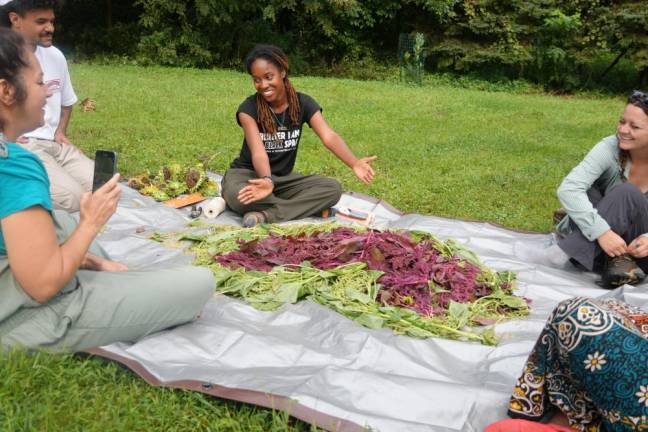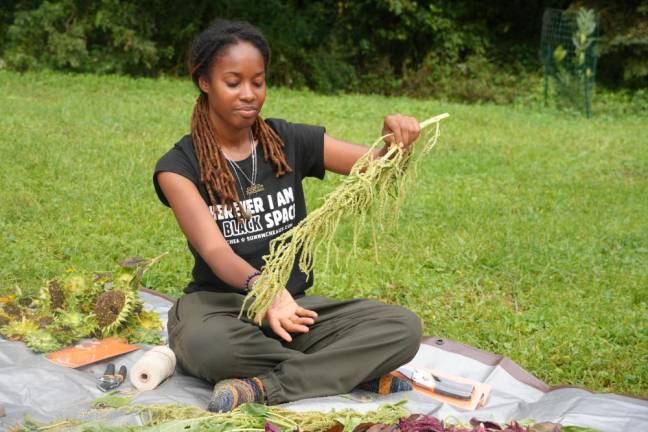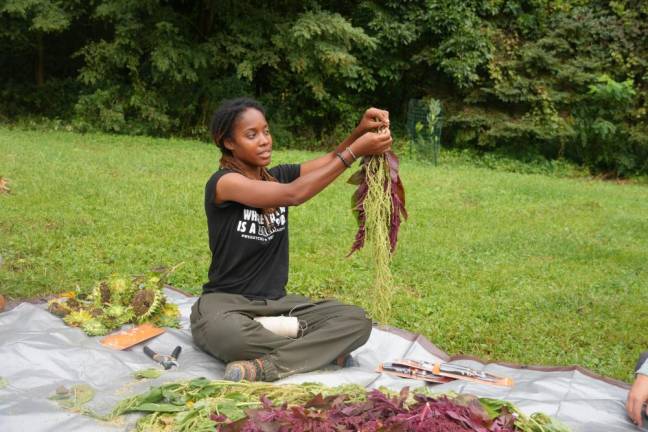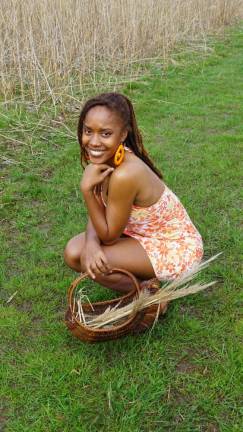A parcel of patience
Reviving the Lucky Lake spirit in a Catskill town




The honeybee mural adorning the Narrowsburg post office immediately endeared me to the sleepy upstate enclave. A stop for “coffee crawlers,” eagle watchers and all-around Catskill daydreamers, Narrowsburg is also home to Luxton Lake, a.k.a. Lucky Lake, once promoted as America’s first interracial lake community. And it is in Narrowsburg that artist and activist-farmer Isa Jamira, founder of Liberated Lands, is practicing the patience that comes with land stewardship.
Liberated Lands is an educational organization dedicated to cultivating indigenous land practices and creating healing growing environments for free thinkers. “We have all this knowledge that they say has been lost,” said Jamira. “But really I feel like what has happened is we have a lot of knowledge and we have people who may be just a little fearful because of what has happened to people who have knowledge, ultimately. We have to create these safe spaces so that people can learn.”
Like the lesson of okra.
It took just one conversation with Jamira for me to re-evaluate my relationship with the rather unctuous vegetable. Jamira lavishes love on the multipurpose mallow, prized for its tender green-to-purple pods. But her okra affair goes far deeper, from the gorgeous flowers, to its uses as an emulsifier and even paper pulp.
Jamira’s knowledge quest has been boundless since she first got her hands into the soil during her junior year of high school at Horace Mann in New York City. As a student of environmental studies at Bates College, she was hired to manage a 1.6-acre student-run farm, where she donned many hats: veggie grower, garden educator and budding earth healer.
The Mount Vernon, NY native returned home after graduation to work in the nonprofit urban ag sector when she realized that city life was making her a bit, well, pot-bound. “All my life I’ve been going to school in the city, I’ve been working in the city, and so now,” she decided, “I want to just retreat from the city a bit, stay rooted, and create more opportunities within my hometown.”
In 2022, a friend told her about a parcel of raw, undeveloped land down the street from their property, in the vicinity of a historically Black Narrowsburg neighborhood.
The first time Jamira visited the parcel, she sensed an energy from the land that said to her, “Welcome. Tread lightly.” Once home to a vibrant community of Black families from New York in the 1950s and 60s, the area was left barren and fell into disrepair in the 80s when developers running heavy machinery over Luxton Lake dam weakened it to the point of destruction. The dam was subsequently demolished and in a few hours, the waters of Lucky Lake were reduced to nothing more than a trickle. With it departed the heart of the community.
After acquiring the land, Jamira made an offering. “I planted a small herb bush, and left and came back a few months later,” she said. “And the roots were really, really strong. What I learned is that the land received my offering... and I need to plan carefully, not rush what this is going to be.”
Like meeting any prospective life partner, Jamira is doing a lot of tender observation of the land, while finding moments to celebrate. The first thing she’s focusing on is fencing, ideally a living fence made of willow, creating a space that is at once both secure but liberated, where “everything has a plan; nothing goes to waste,” she said.
Jamira is also reviving the Lucky Lake spirit, inviting the community to celebrate the power of the earth and the power of people as part of an annual festival co-hosted by Liberated Lands and Roots & Culture Farm. The third annual festival, taking place in Marlboro in late summer, gathers BIPOC farmers, herbalists, healers, musicians, artists and more to offer land-based skill shares and family activities.
Jamira’s thoughtful approach to working with the earth comes not only from the guidance of the land itself, but the present-day reality. “I’m not going to be naive and act like me, a Black woman, can just kind of, like, move to the middle of the woods. I can’t take security for granted,” she said. “Just because I’m Black in America; we can’t get around that.”